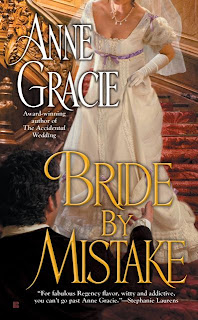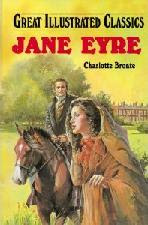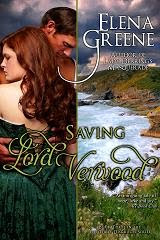 Exciting day today. Today our guest is the incomparable Anne Gracie (be sure to read her bio! Find out why her parents were called “Chalkers.”). Her books have been lauded in North America and Australia, and today she is talking about her latest release, Bride By Mistake.
Exciting day today. Today our guest is the incomparable Anne Gracie (be sure to read her bio! Find out why her parents were called “Chalkers.”). Her books have been lauded in North America and Australia, and today she is talking about her latest release, Bride By Mistake.
Praise for Bride By Mistake:
“Gracie pens an unconventional Regency romance with an original heroine and setting for the next Devil Riders story. This character-driven romance appeals to readers yearning for a love story with an unforgettable twist.” –RT BookReview
“I loved Bride By Mistake. Gracie created two great characters, a high tension relationship, and a wonderfully satisfying ending. Not to be missed!” –Mary Jo Putney, NYT Bestselling Author.
Anne will be giving away a signed copy of Bride By Mistake to one lucky commenter!
1. Tell us about Bride By Mistake and how it is connected to your Devil Riders series.
The Devil Riders series is about four friends, Gabe, Rafe, Harry and Luke, former soldiers who have returned from years at war and are trying to settle in to a peacetime existence. Each one finds it hard, and for each the key is finding the right woman. The problem is, they don’t always realize she’s the right woman.
Bride By Mistake is Luke’s story, the 5th in the series, but each book is stand alone. (The last book, The Accidental Wedding was an off-shoot of the series and starred Nash, an estranged brother of Gabe and Harry.)
2. What sparked the idea for Bride By Mistake?
I suppose it was a kind of dream. I just woke up one morning with a scene rolling in my head like a movie. A young girl was being attacked in the mountains, a hero rides to the rescue, and then, having saved her and promised to protect her, he doesn’t know what to do with her.
I wrote it down, still half asleep, and even though I was working on another book, that scene kept haunting me, so I knew there was more to it, possibly a book. So I asked myself what-if questions until I knew more about the story and the characters, and where it might go from there, and then I wanted to tell that story.
3. We’re all for risky! What is risky about Bride By Mistake?
I never think about whether a book is risky or not — I just get an idea and follow the characters. It’s only later when the book is in that I start to worry that it might be risky. What’s risky about Bride By Mistake?
Let’s see…
(i) It’s set mostly in Spain — I’ve been told readers don’t like foreign settings, but I’ve set quite a few books outside of England, and they’ve all sold well, so fingers crossed this does, too. The way I see it is, why not incorporate some delicious exotic elements when you can?
(ii) The scene where the hero and heroine first meet is dark and quite violent. But they’re in the middle of a war, so it’s not surprising. There is also some violence later on, and there’s also comedy, so mixing the two might be risky. I think/hope it works, though.
(iii) The heroine is only 13 when she marries the hero. But it’s not how it looks, as my hero makes clear to when breaking it to his matchmaking mother that he’s already married:
“But Luke… Thirteen, a mere child! How could you?” She looked at him with faint horror.
“Don’t be ridiculous, Mama,” he said with asperity. “Of course I never touched her. What do you take me for?” And because he could still see the confusion and anxiety in his mother’s eyes, he continued, “I married her to protect her, of course. And then I gave her into the care of her aunt, who is a nun.”
So it’s eight years later when the story — and the marriage— really starts. And the heroine has spent all that time in a convent — not too happily, I might add. 😉
4. Did you come across any interesting research when writing Bride by Mistake?
Yes, I read quite a bit about the period — journals and books — trying to learn about the situation in Spain during and after the Napoleonic wars, because I had to know how my heroine had lived. Of course it was for backstory, so hardly any of it was used in the book, but that’s what happens with most research anyway.
It was a very difficult time for Spain — the country was split. To cut a long story short, the Spanish King abdicated in favor of Napoleon’s brother, and half the country followed suit and half the country rebelled. The Spanish rebels called themselves guerrilleros. They were on the side of the English — anyone who would help them throw the French out, really.
Another interesting thing was that after the war, many of the great aristocratic families were ruined financially, which meant their daughters had no dowries. Pride dictated that this not be known, and pride also dictated that their daughters not sully their aristocratic blood by marrying beneath their class, so many young women were simply sent to convents. Their sons, however married into the nouveau riche quite happily. The family name must not be allowed to die out, after all. So my heroine was in the convent with some girls in this situation.
Bella had explained this to Paloma a dozen times, but all Paloma did was smile and say, “We must all have faith.”
She’d make a good nun, Isabella thought. Or a saint. St. Paloma of the missing dowry. Paloma’s brother had gambled Paloma’s dowry away, and now he was refusing to let her return home. Things were different since Papa died, he’d written. There was no appropriate husband for her and she was better off in the convent, in the tranquil environment she was used to.
Bella picked up a well worn sheet and ripped it savagely in half. Tranquil environment indeed! She’d love to lock Paloma’s brother up here, give him a taste of tranquil environment. Endless prayers, endlessly repeated dreary, pointless conversations and endless, endless sewing.
I also researched Spanish food and some regional cuisine. Tough work, but somebody has to do it. 🙂
5. Tell us what it is about the Regency that inspires your writing.
I first fell in love with the period through Georgette Heyer, who I’ve been reading and rereading since I was eleven. In a way, I feel as though I’ve grown up there, so it doesn’t feel foreign or artificial or even old-fashioned to me — it’s just another place I visit.
I also love the sheer scope the Regency era gives a writer — from elegant ballrooms, fabulous clothes and witty conversations, to wars, industrial changes, social upheaval, major political changes, a huge expansion in travel and trade and more. Almost any kind of story I want to write, I can set it in the Regency.
6. What is next for you?
I’ve started on a new series, about four girls — two sisters and two friends they make along the way and pass off as sisters. It’s probably a bit risky too, come to think of it, but I’m a bit superstitious about talking about books until they’re written. All the stories will be set in London, at least I think they will be at this point. It’s still fairly fluid. But the first story has sprung to life, which is a good sign, and I keep waking in the morning with scenes in my head, which is even better. I think/hope they’re going to be fun. Diane and the Riskies, thank you so much for inviting me to chat with you. I’ve really enjoyed it.
Let me ask, what appeals to you about the Regency Era that you enjoy seeing in historicals?
Diane, here. You can also ask Anne questions! It will soon be tomorrow in Australia, though, so part of the time, Anne will be sleeping.
Remember, one lucky commenter will be chosen at random to win a signed copy of Bride By Mistake.









